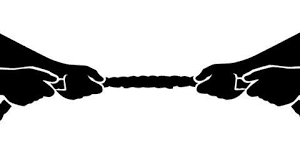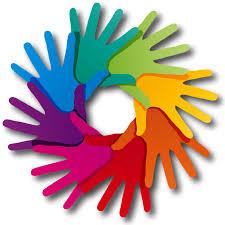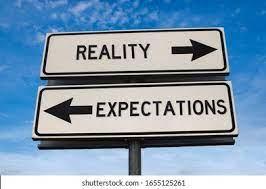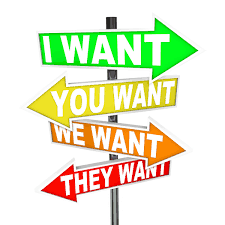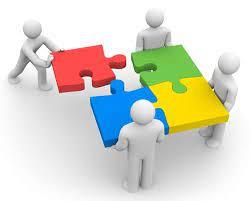Mind Your Own Business: Why You Can’t Change Other People - The Art of Living Consciously
Curated from: theartoflivingconsciously.com
Ideas, facts & insights covering these topics:
9 ideas
·5.08K reads
41
Explore the World's Best Ideas
Join today and uncover 100+ curated journeys from 50+ topics. Unlock access to our mobile app with extensive features.
Mind Your Own Business: Why You Can’t Change Other People
Many of us find ourselves wanting to change other people in our lives. It might be a partner, a family member, a friend, or even a coworker.
We have judgement around what is going on with them and believe that they should behave in accordance with our thoughts of what’s good for them.
We believe this person has a problem and we want to solve what we see as the issue.
But the truth is, we cannot change another person, and attempting to do so actually harms the relationship. This is another important part of minding our own business and allowing others to mind theirs.
68
870 reads
Why We Want To Change Other People
As a substitute for working on ourselves
When we’re trying to change other people, it’s often because we have our own healing to do. We might think it’s easier to change another person than to change ourselves. Trying to help another person is not a substitute for doing our own work. Our reactivity to that person’s behavior is likely our own unconscious issues coming up. It may feel easier to project onto another person and distract ourselves than face our own problems.
65
780 reads
To feel like a helper
We may also want to feel like a hero for helping someone else to boost our own self-image.
We might be attracted to someone because we believe that person is wounded and we can help them. We might believe we can love someone out of their issues and that this will heal us or help us feel better about ourselves. We also believe that that person will love us for saving them.
This can also happen the other way around, where you have a wound and someone comes into your life to rescue you. Unfortunately, we can’t heal others, others can’t heal us.
55
556 reads
Because others expect us to
Sometimes, people expect others to be able to heal them when they don’t want to take responsibility for healing themselves.
Another person’s dysfunction is not about love or a lack of love. It’s about their woundedness; perhaps past traumas, addictions, or other factors.
You can’t love someone out of their problems, and trying to do so is a recipe for disappointment. It’s inflating your own self-importance in a setup for more problems. We can think we’re being selfless, but we often have a hidden agenda. We want to be the one they’re leaning on and have an excuse not to do our own work.
57
488 reads
Why You Can’t Change Other People
Ultimately, one has to heal oneself. No one can do this work for another person.
Let’s take a broken leg: A doctor can set the bone, prescribe medication, and guide the healing process. Other people can support that person while they heal by taking care of driving, shopping, and other tasks, but ultimately, the person is responsible for doing things that will help their leg heal like keeping their weight off of it, physical therapy, and following medical advice.
It is the same with mental or emotional wounds. A person has to heal themselves, and they have to choose to heal. And this is not easy.
59
467 reads
Unreasonable Expectations
Ultimately it is up to the other person to decide if they believe there is a problem, and if they want to do anything about it. If they do want to change, we can support them in their decision, but they must do the actual work.
You can’t change other people, so do yourself a favor and stop expecting yourself to be able to. It’s hard enough for us to change ourselves. No one else can change us, and we can’t change anyone else.
58
465 reads
The Difference Between Supporting and Enabling
While we can’t heal someone, we can support them as they heal.
Support verses Enabling
Support means that you care about the person and can offer love while they’re in the process of changing. For example, if you want to support a spouse in their recovery from alcoholism, support may include offering to watch the kids while they go to therapy or AA meetings (that they have chosen to attend) and listening to them on their healing journey.
On the other hand, enabling means that you take responsibility, make excuses, or cover up for their behavior.
53
407 reads
Are you minding your own business or trying to force your agenda on someone else?
As always, the first step is noticing. Notice if you are trying to change or control someone. Are you more invested in their healing than they are in healing themselves? Are you using manipulation, anger, or other forms of control?
Are you relying on someone else to heal you? Are you looking for a knight in shining armor to rescue you from your problems?
The first step is always awareness and consciousness. Once you’re aware and conscious, you can ask yourself why this is a problem in your life? Until then, it’s hard to focus on changing your own behavior to promote your own growth.
61
410 reads
Quotes on Change
“Everyone thinks of changing the world, but no one thinks of changing himself.”
-Leo Tolstoy
“If you do not change direction, you might end up where you are heading.”
-Lao Tzu
“Yesterday I was clever, so I wanted to change the world. Today I am wise, so I am changing myself.”
-Rumi
64
637 reads
IDEAS CURATED BY
CURATOR'S NOTE
Why You Can't Change Other People
“
Tom Joad's ideas are part of this journey:
Learn more about communication with this collection
How to create a productive environment
The importance of self-care in productivity
How to avoid distractions
Related collections
Similar ideas
3 ideas
7 ideas
Work WITH your emotions rather than suppressing them
draudreyt.com
5 ideas
Conform to the social norm: why people follow what other people do
theconversation.com
Read & Learn
20x Faster
without
deepstash
with
deepstash
with
deepstash
Personalized microlearning
—
100+ Learning Journeys
—
Access to 200,000+ ideas
—
Access to the mobile app
—
Unlimited idea saving
—
—
Unlimited history
—
—
Unlimited listening to ideas
—
—
Downloading & offline access
—
—
Supercharge your mind with one idea per day
Enter your email and spend 1 minute every day to learn something new.
I agree to receive email updates

